Are you a freelancer looking to land that perfect gig? Crafting a compelling letter can make all the difference in showcasing your unique skills and professional experience. In this article, we'll guide you through a flexible letter template tailored specifically for freelance work offers, ensuring you make a lasting impression. So, let's dive in and discover how to elevate your freelance career!

Clear Job Description
A well-defined job description is critical for freelance work offers, ensuring clarity for both freelancers and clients. Key elements include project scope, outlining tasks such as graphic design for marketing materials or software development for a mobile application. Specify deliverables, such as five high-resolution images or a fully functional app by a set deadline, for example, two months from contract signing. Consider including required qualifications, like proficiency in Adobe Creative Suite for design roles or experience in Python for programming tasks. Payment terms should also be detailed, indicating rates such as hourly ($50 per hour) or fixed-price ($2,000 for the entire project), along with deadlines for payment milestones. Additionally, highlight expectations regarding communication methods (e.g., weekly status updates via Zoom), availability, and any relevant project background, such as the brand identity for a startup or features of an existing application needing enhancement. Clear job descriptions establish a mutual understanding between clients and freelancers, promoting successful project completion.
Compensation and Payment Terms
Compensation packages for freelance work often vary based on project requirements, industry standards, and individual expertise. Freelancers typically negotiate an hourly rate or a fixed project fee, with hourly rates ranging from $20 to $150 depending on the skill level and experience. Clear payment terms are vital for successful collaboration, including stipulations for upfront deposits (commonly 20-50% of the total fee), milestone payments upon completing specific project phases, and final payment upon project delivery. The preferred payment methods might include bank transfers, PayPal, or escrow services - each offering varying levels of security and transaction fees. Setting a timeline for invoicing and payments (often within 30 days post-invoice receipt) helps ensure smooth financial transactions and fosters trust between freelancers and clients.
Deadline and Project Timeline
A projects' timeline sets clear expectations and deliverables for freelancers, ensuring effective collaboration. Deadlines must be specific, such as "Initial draft due by March 15, 2024." Phases like "Revisions from March 16 to March 20, 2024" provide structured feedback opportunities. Final submission can be scheduled for "March 25, 2024," allowing time for last-minute adjustments. Communicating these timelines in platforms like Google Calendar enhances visibility and accountability, reducing missed deadlines. Adjustments and unforeseen circumstances should be documented during regular check-ins to maintain updated project status.
Communication and Reporting
Freelance work involving effective communication strategies is essential for successful project execution. Clear, concise messaging can enhance stakeholder engagement and ensure project goals are conveyed accurately to team members. Regular reporting metrics such as weekly updates or monthly performance reviews provide crucial insights into progress and areas needing attention. Utilizing digital communication tools like Slack for immediate interaction or Asana for project tracking supports collaboration across various time zones, fostering a sense of unity among team members. Establishing a transparent reporting framework can track milestones achieved, budgets adhered to, and timelines met, contributing significantly to overall project success and client satisfaction.
Confidentiality and Ownership Rights
A freelance work offer often includes crucial aspects such as confidentiality and ownership rights. Regarding confidentiality, the agreement emphasizes the importance of protecting sensitive information related to the client's projects, including proprietary methods, unpublished data, and trade secrets, ensuring that this information is not disclosed to third parties. Ownership rights specify that all intellectual property (IP) created during the freelance engagement, including designs, written content, and software code, will be transferred to the client upon full payment, ensuring the client retains all rights to use, modify, or distribute the work as they see fit. This legal framework protects both parties' interests during and after the project.

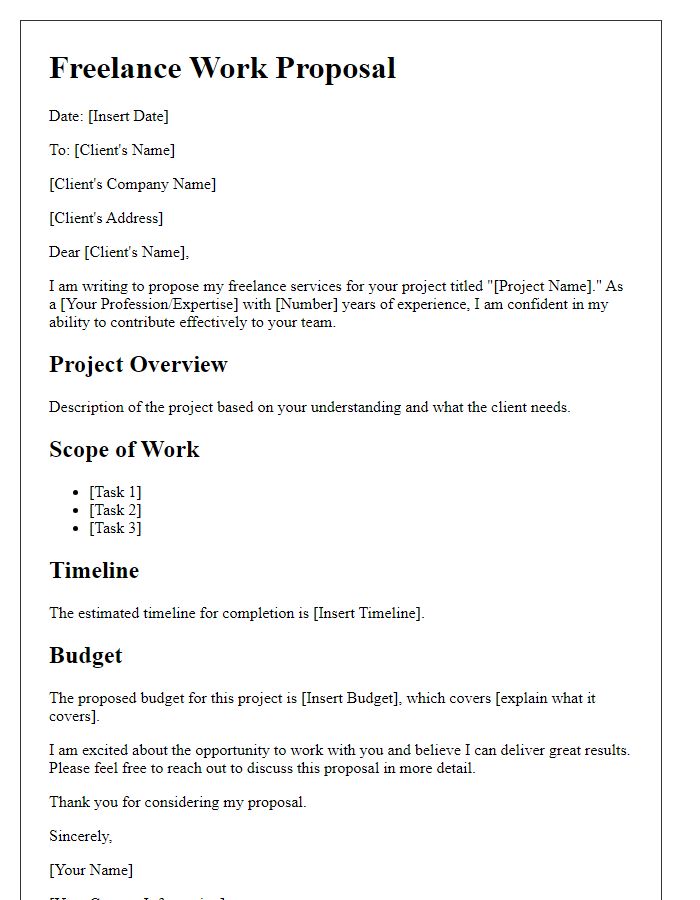
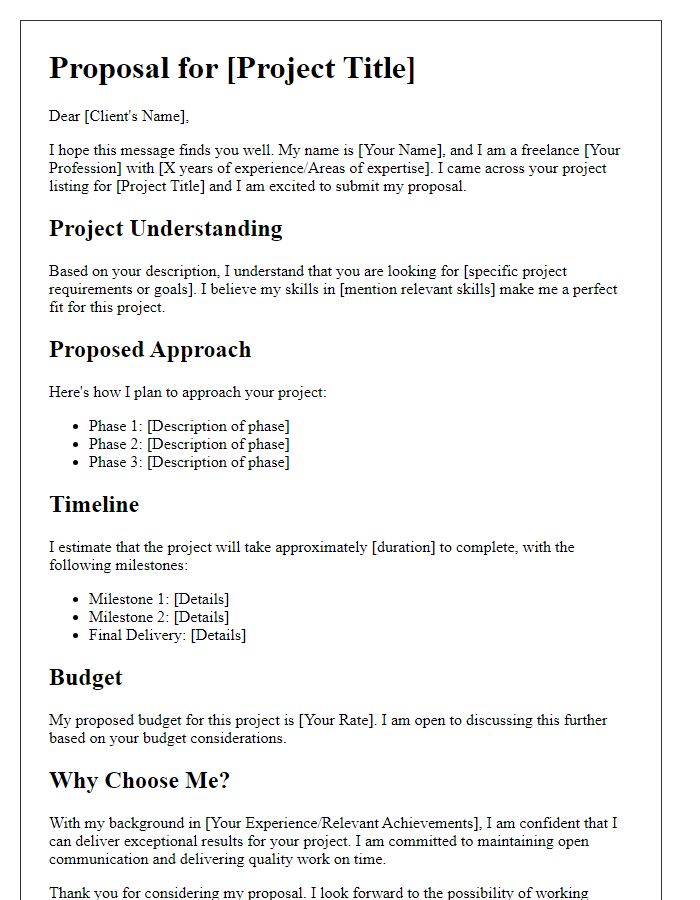
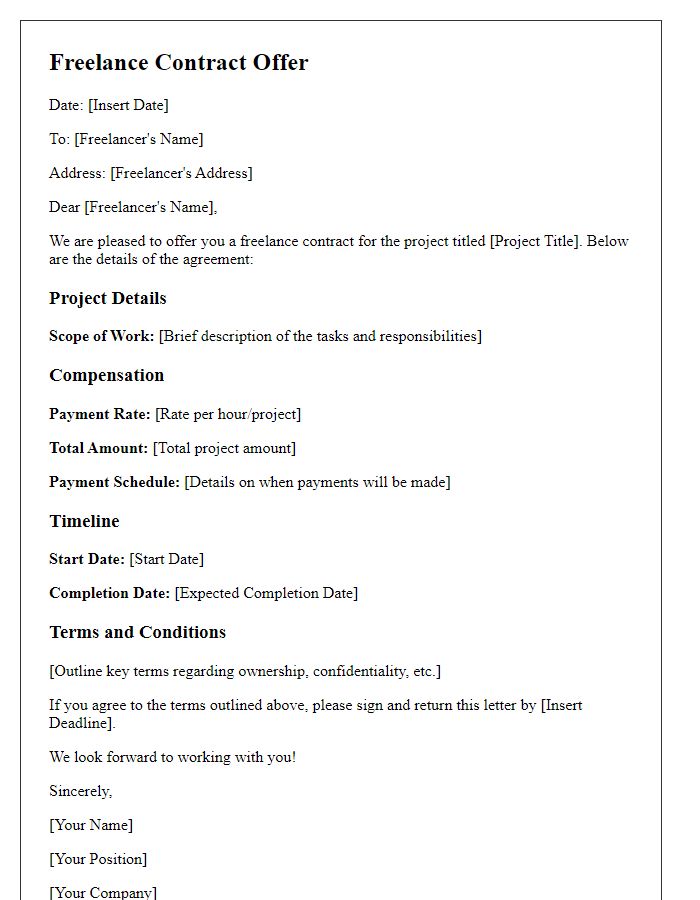
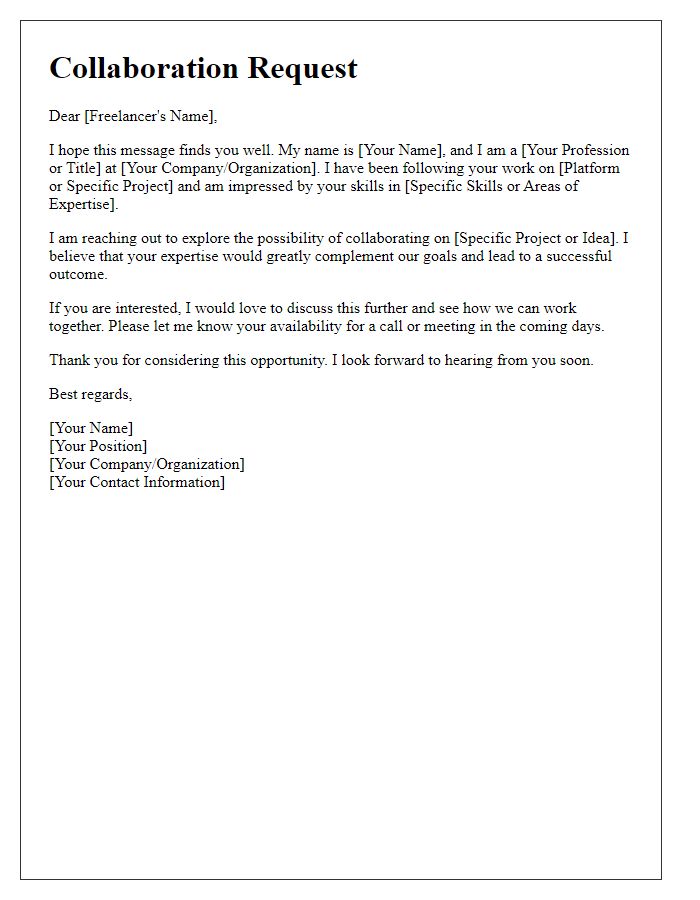
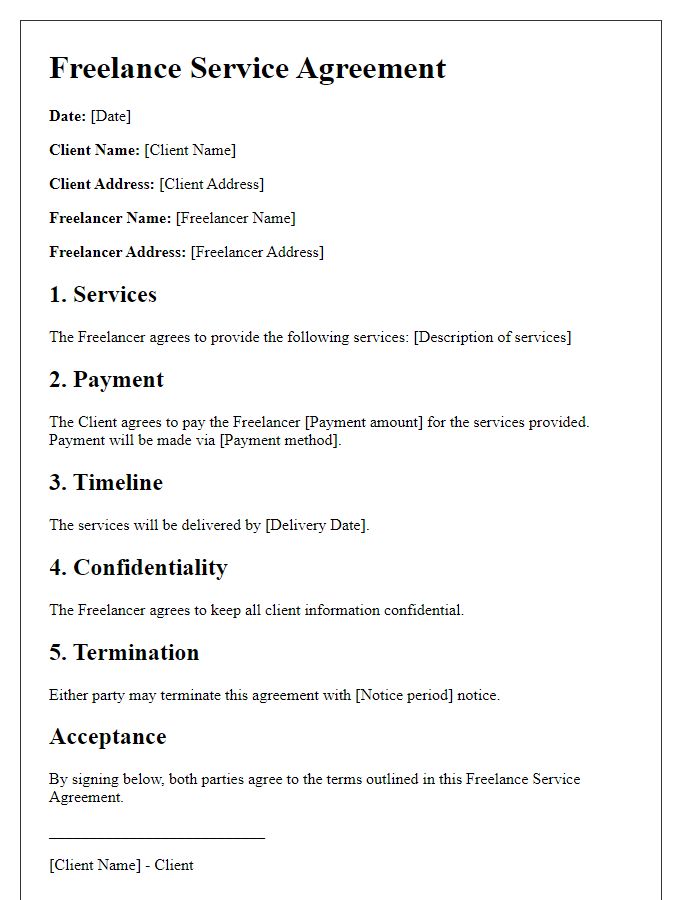
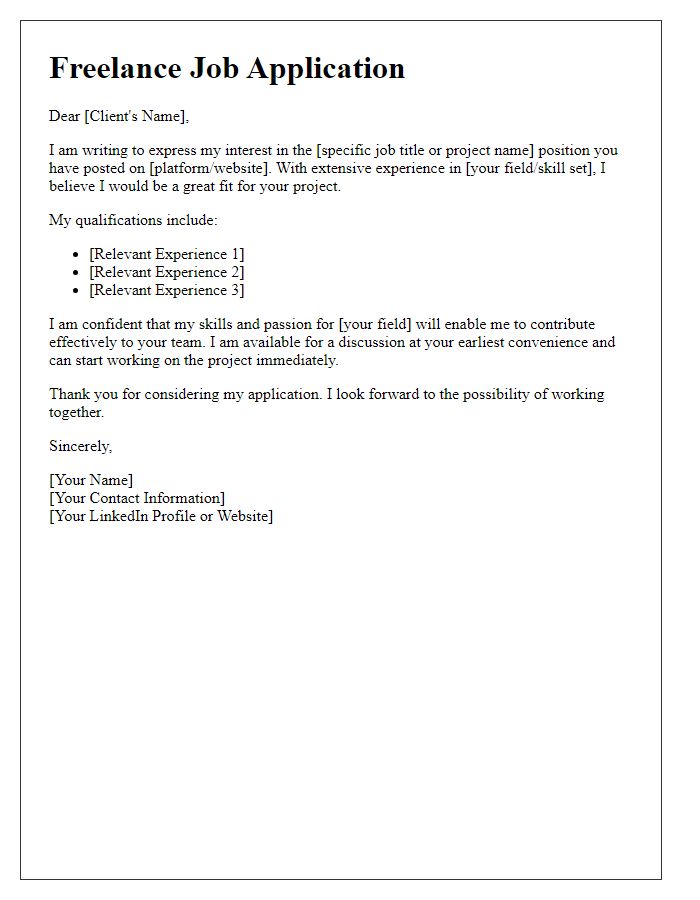
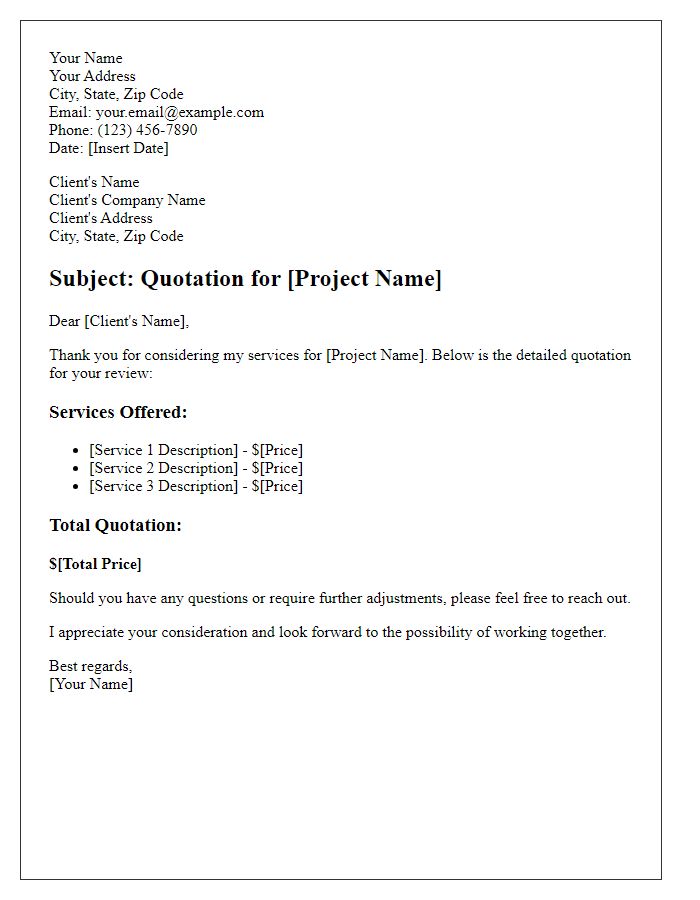
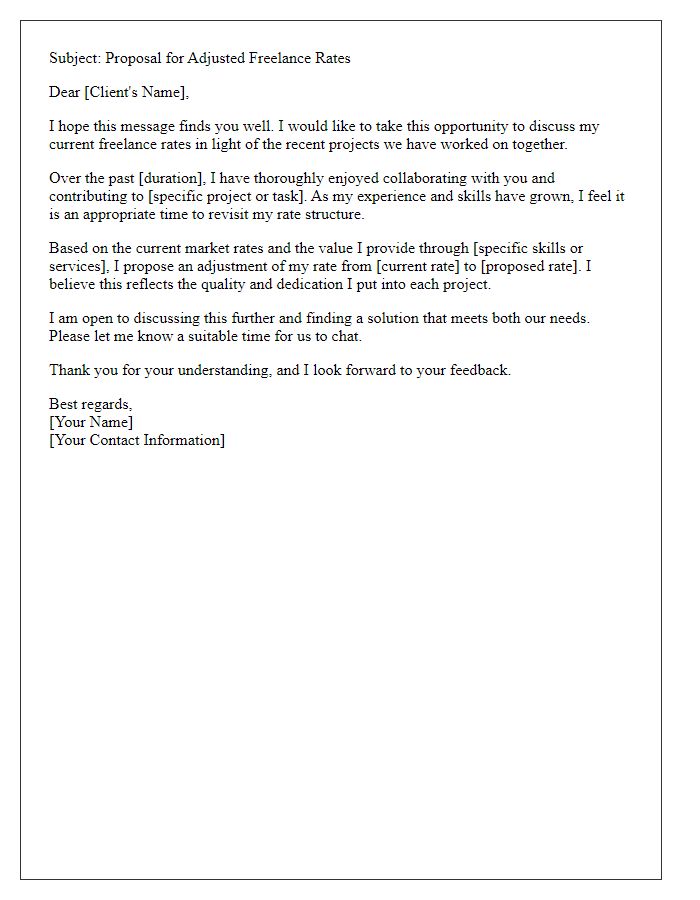
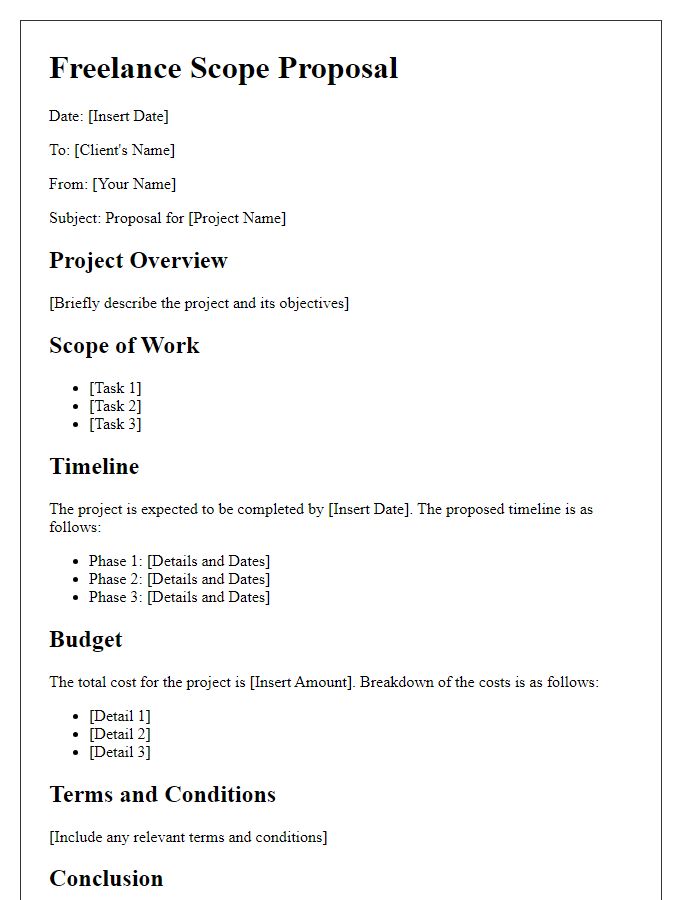
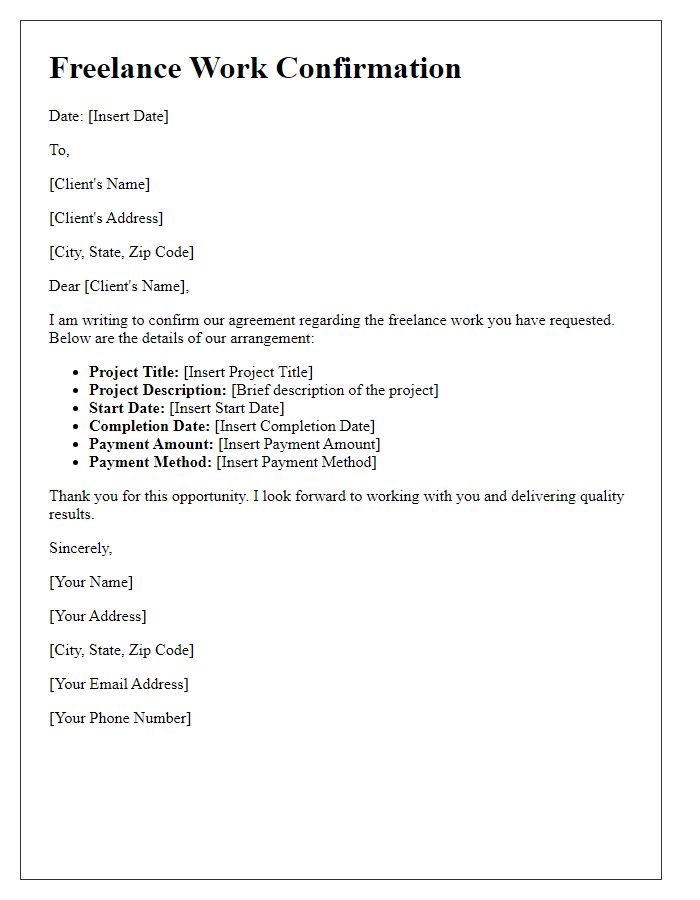


Comments